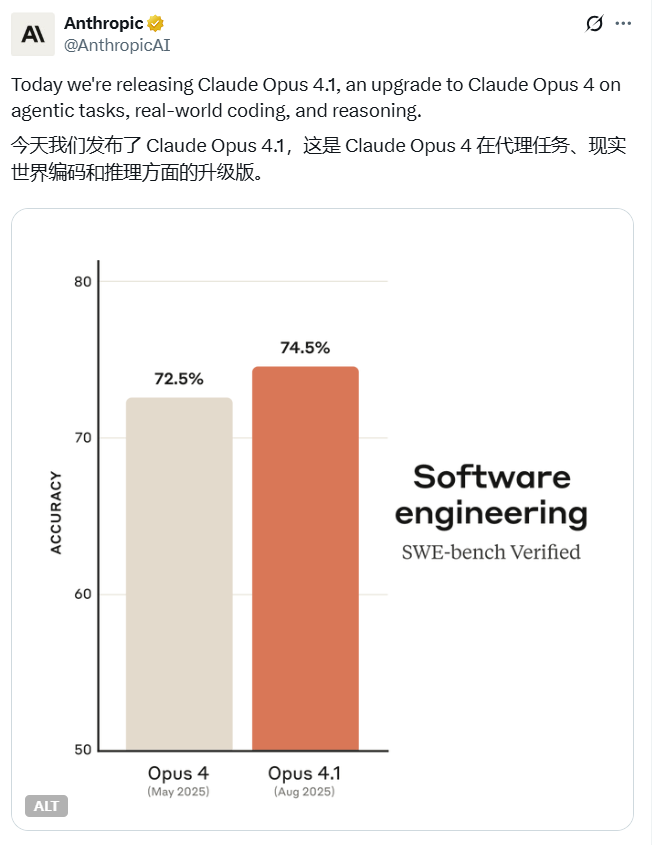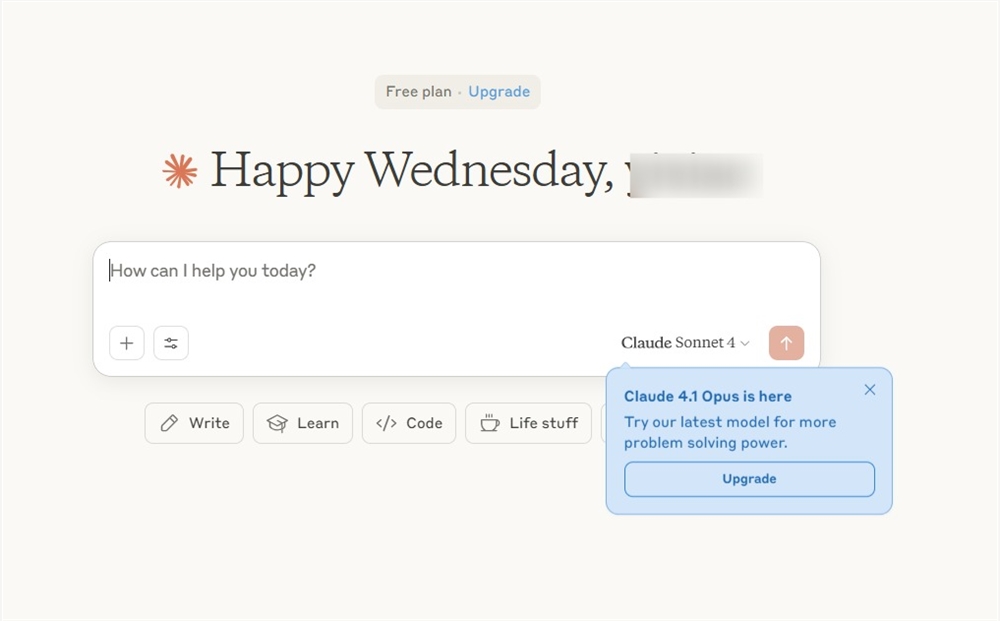Anthropic Launches Claude Opus 4.1 with Enhanced AI Capabilities
Anthropic Launches Claude Opus 4.1 with Enhanced AI Capabilities
Anthropic has officially unveiled Claude Opus 4.1, the latest iteration of its flagship AI model, delivering significant advancements in Agent tasks, real-world coding, and reasoning capabilities. Positioned as a direct upgrade to Claude Opus 4, the new version is now accessible to paid users through API, Amazon Bedrock, and Google Cloud's Vertex AI.

Performance Benchmarks
Claude Opus 4.1 achieved a 74.5% score on the SWE-bench Verified software engineering benchmark, up from 72.5% in the previous version. The model excels in multi-file code refactoring, precise debugging, and complex task execution. According to GitHub, it outperforms its predecessor in most capabilities, particularly in handling large codebases efficiently.
Rakuten Group reported that the model can accurately identify errors in extensive code repositories, minimizing unnecessary adjustments and reducing bug introductions—boosting daily debugging productivity.

Agent Tasks and Reasoning Upgrades
The model demonstrates stronger multi-step reasoning and detailed tracking in benchmarks like TAU-bench and GPQA Diamond, making it ideal for long-term autonomous operations. Anthropic highlights its ability to analyze complex data sources—such as patent databases, academic papers, and market reports—to provide strategic insights for decision-making.
Claude Opus 4.1 also supports extended reasoning with a context window of up to 64K tokens, enabling more accurate processing of lengthy information.
Seamless Upgrade for Developers
The transition to Claude Opus 4.1 is designed for simplicity: developers only need to update the model string from claude-opus-4-20250514 to claude-opus-4-1-20250805 without altering API configurations. Pricing remains unchanged at $15 per million input tokens and $75 per million output tokens, with additional cost-saving features like prompt caching (up to 90% savings) and batch processing optimizations (50% cost reduction).
Safety and Stability Commitments
Anthropic emphasizes safety with Claude Opus 4.1, reporting a 98.76% harmlessness response rate (up from 97.27%) and a minimal rejection rate of 0.08%. Rigorous testing ensures the model stays below high-risk thresholds in areas like biological risks and network capabilities.
Industry Competition and Future Plans
The release comes amid intensifying competition in AI development. Anthropic's Chief Product Officer, Mike Krieger, noted a shift toward incremental improvements over major upgrades. The company also teased "larger-scale model improvements" in the coming weeks.
The launch strengthens Anthropic's position against rivals like OpenAI, which is rumored to be developing GPT-5.
Key Points
- Enhanced coding performance: Scores 74.5% on SWE-bench Verified.
- Improved reasoning: Excels in multi-step tasks and long-context analysis.
- Cost-effective: Retains pricing while offering savings via caching and batch processing.
- Safety-focused: High harmlessness response rate (98.76%) and low rejection rate (0.08%).
- Seamless integration: Easy upgrade path for developers.